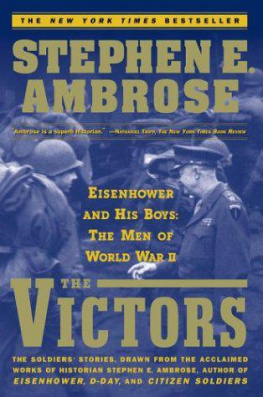WE SHALL FIGHT ON THE FIELDS AND IN THE STREETS; WE WILL NEVER SURRENDER
Adolf Hitler, leader of Nazi Germany, ordered his army to invade Poland on September 1, 1939, igniting World War II in Europe. This bloody conflict ravaged Europe, and millions of people died. Generals Dwight Eisenhower and George Patton led the United States armed forces across the Atlantic, helping the Allies claim victory. From the beaches of Normandy to the streets of Berlin, author R. Conrad Stein examines the important battles, the men and women who fought the war, and how this conflict changed the world.
About the Author
R. Conrad Stein is the author of more than one hundred books for young readers, including Escaping Slavery on the Underground Railroad and Cuban Missile Crisis: In the Shadow of Nuclear War for Enslow Publishers, Inc.

Image Credit: Imperial War Museum
In 1984, the Chicago writer Studs Terkel compiled a book called The Good War. The book was a collection of interviewsmemories of what people did during World War II. It was called The Good War, because it seemed to most Americans at the time to be a conflict pitting good against evil. There was truth to that somewhat one-sided American belief. Most people today agree that Nazi Germany and Imperial Japan were wicked empires and the world is a far better place without them. But to call a war good even if it eradicated an evil is to ignore the nature of the war. As Studs Terkel said, the adjective good mated to the noun war is incongruous.
The European War was especially cruel because it was waged on a crowded continent. Women, children, and elderly people were killed by the millions. Campaigns in Italy, Germany, France, and Russia destroyed families, shattered minds, and erased the work of ancient cultures. Those who fought in Europe found little good in the war. An American, who endured many months of hellish European fighting, told Terkel, No war can be just. During combat, I would say to myself, this whole damn thing isnt worth one drop of American blood, or anyones blood.
Still, the European War was an indelible chapter in world history, one that saw the victorious Allied armies crushing a powerful nation led by a madman. But the vast majority of men and women who suffered through the war agree, it is one episode in history that should never repeat itself.
1
CANNED GOODS

THE VICTOR [IN THIS WAR] WILL NEVER
BE ASKED IF HE TOLD THE TRUTH.
Adolf Hitler

Early morning, August 31, 1939. No doubt the thirteen German convicts were confused when they were ordered out of a prison camp and driven to a schoolhouse in eastern Germany near the Polish border. The men had been sentenced to death for various crimes, and they grimly awaited their fate in jail. Now they surely wondered why they were being brought to an empty school building. Inside a classroom, German officers ordered the men to undress and put on Polish army uniforms. A doctor then injected twelve of the thirteen prisoners with a poisonous drug. No one knows if the criminals fought the officers, or if they meekly accepted their deaths.
Guards dragged the corpses to a wooded area, where they were sprayed with machine-gun fire. Pictures were taken, and journalists were called to the scene. The journalists were told the bodies were those of Polish invaders who had been gunned down while attacking Germany.
Next, the officers drove the remaining prisoner to the nearby German town of Gleiwitz. Now dressed in civilian clothes, the officers broke into the towns radio station. One of the officers spoke fluent Polish. Over the radio he gave an impassioned speech announcing the shocking news that Poland had invaded Germany. At the conclusion of the speech, the remaining convict was shot several times in the chest and was left facedown on the floor. A German spokesman later stated the convict was a firebrand Pole who seized the radio station, delivered an angry declaration of war, and was then killed by German patriots.
The bizarre and cruel events at the Polish border were part of a top secret German plan called Operation Canned Goods. The canned goods were the hapless convicts. They were used as stage props in a deceptive drama designed to justify a German invasion of Poland.
At 10 A.M. the next morning, the German leader, Adolf Hitler, spoke over the radio: Last night Polish soldiers fired on our territory. From now on, bombs will be met with bombs. At the very moment Hitler made his speech, the German army, which had been massed at the frontier for weeks, was sweeping into Poland.

Image Credit: Associated Press
A young Polish boy sits among the ruins of his home in Warsaw, Poland, during a pause in the German air raids in September 1939.
Germans were stunned by the news. Surely this meant war, not only with Poland, but also with her powerful allies, Great Britain and France. American journalist William Shirer, who was stationed in Berlin, noted in his diary, Everybody against the war. People talking openly. How can a country go into a major war with the people dead set against it?
Some Germans believed France and Great Britain would do nothing in defense of Poland because European nations seemed to be afraid of Adolf Hitler. In March 1936, German troops occupied the Rhineland, a district on the border with France, which, according to the Versailles Treaty, was off-limits to the German army. Two years later, Hitler sent his armies into Austria and made that nation a part of greater Germany. Finally, in late September 1938, Germany seized the Sudetenland, a region of Czechoslovakia. In each of these bloodless conquests, France and Great Britain threatened to wage war but stopped short of using military force to halt Germanys aggressions.

Image Credit: Associated Press
Adolf Hitler (front right) marches through the streets of Moravia, Czechoslovakia, on October 7, 1938. This German town was part of the Sudetenland region that Germany annexed before invading Poland.
Poland, however, was final proof that appeasing Hitler simply fueled his greed for greater territorial gains. Three days after the invasion of Poland, both Britain and France declared war on Germany. World War II in Europe had begun. German leaders were shocked and dismayed at the French and British stand. Hermann Goering, chief of the German air force and number two man in the government, said to his aide, If we lose this war, then God help us.
2
THE SWASTIKA SPREADS ACROSS EUROPE

WE SHALL FIGHT ON THE BEACHES, WE SHALL

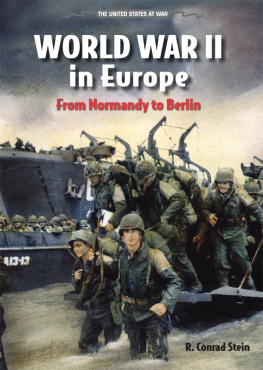
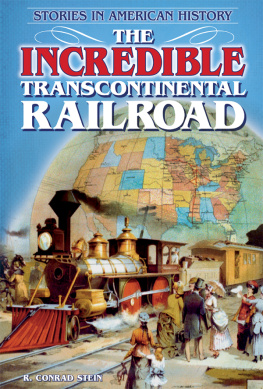




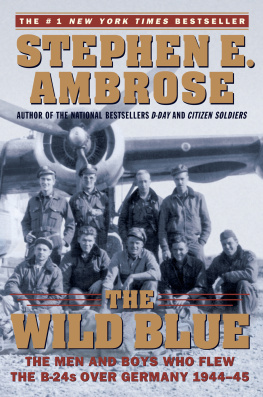
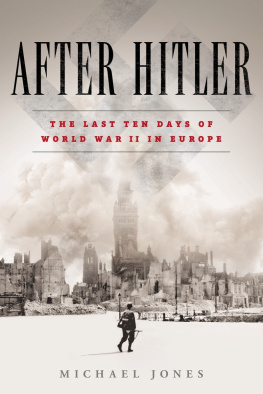
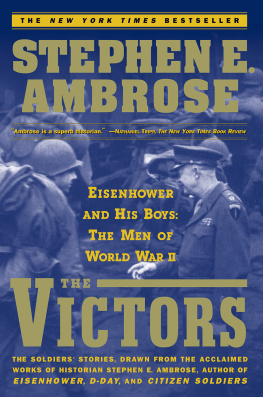
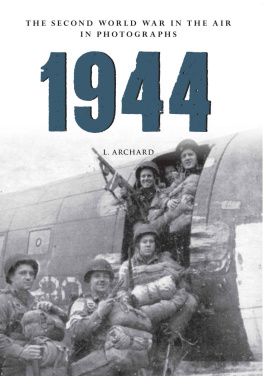
![Russell - Leaping The Atlantic Wall - Army Air Forces Campaigns In Western Europe, 1942-1945 [Illustrated Edition]](/uploads/posts/book/94591/thumbs/russell-leaping-the-atlantic-wall-army-air.jpg)
